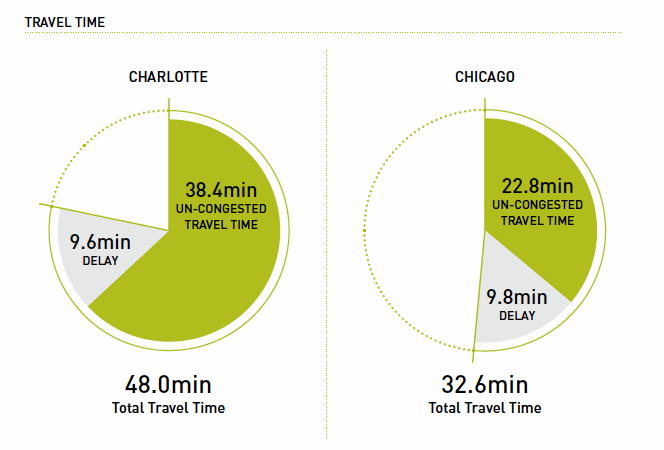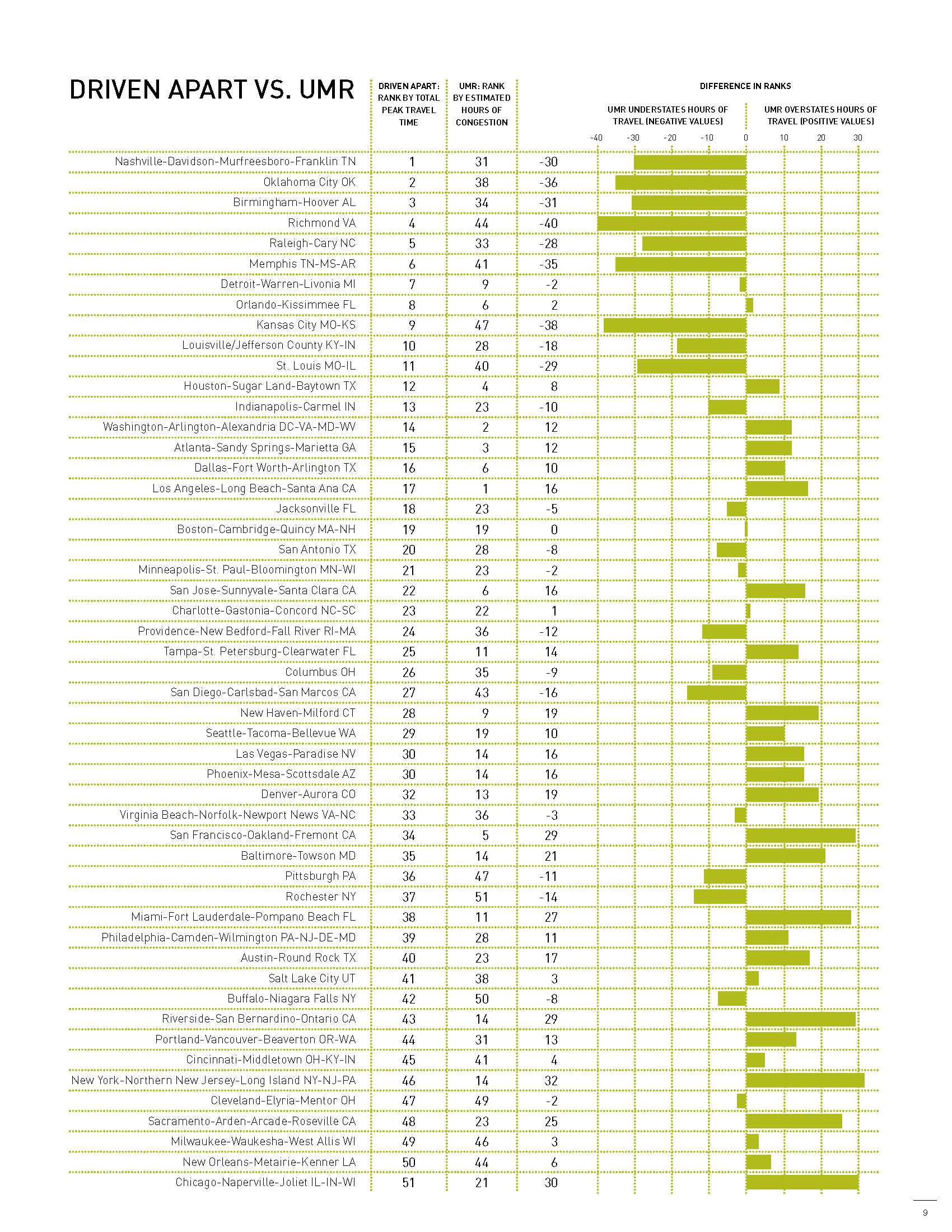CEOs for Cities
EXECUTIVE SUMMARY
THE SECRET TO REDUCING THE AMOUNT OF TIME AMERICANS SPEND IN PEAK HOUR TRAFFIC HAS MORE TO DO WITH HOW WE BUILD OUR CITIES THAN HOW WE BUILD OUR ROADS.
While peak hour travel is a perennial headache for many Americans — peak hour travel times average 200 hours a year in large metropolitan areas — some cities have managed to achieve shorter travel times and actually reduce the peak hour travel times. The key is that some metropolitan areas have land use patterns and transportation systems that enable their residents to take shorter trips and minimize the burden of peak hour travel.
That’s not the conclusion promoted by years of highway-oriented transportation research. The Urban Mobility Report (UMR) produced annually by the Texas Transportation Institute and widely used to gauge metropolitan traffic problems has overlooked the role that variations in travel distances play in driving urban transportation problems.
This report offers a new view of urban transportation performance. It explores the key role that land use and variations in travel distances play in determining how long Americans spend in peak hour travel. It shows how the key tool contained in the Urban Mobility Report – the Travel Time Index – actually penalizes cities that have shorter travel distances and conceals the additional burden caused by longer trips in sprawling metropolitan areas. Finally, it critically examines the reliability and usefulness of the methodology used in the Urban Mobility Report, finding it does not accurately estimate travel speeds, it exaggerates travel delays, and it overestimates the fuel consumption associated with urban travel. How we measure transportation systems matters, and the nation needs a better set of measures than it has today.
Download executive summary (PDF): DRIVEN APART
Download full technical report (PDF)
About CEOs for Cities
www.ceosforcities.org
“CEOs for Cities is a civic lab of today’s urban leaders catalyzing a movement to advance the next generation of great American cities.”
Tags: CEOs for Cities, Impresa, Joe Cortright, Rockefeller Foundation, Synthesis, Texas Transportation Institute, UMR, Urban Mobility Report








 RSS Feed
RSS Feed